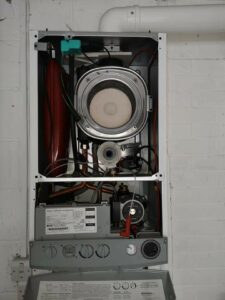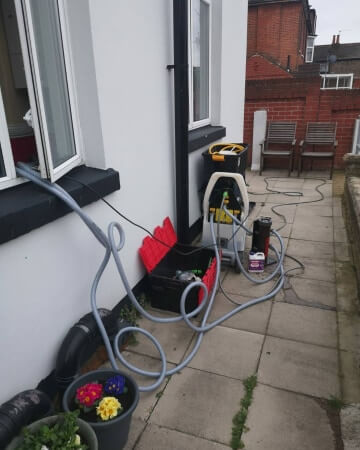The Differences Between Boiler Types
If your existing boiler has broken down, or you would like to upgrade your system, you might be confused about the right option for your needs. As there are various boiler types available, you must pick an option to match your specific needs and budget.
Here at GJS Plumbing & Heating Services, we are breaking down the differences between boiler types, which could help you make an informed choice.
Combi Boilers
A combi boiler is the most common option in homes across the UK. It is both a central heating unit and a water heater, as it can heat hot water in an instant by burning fuels like oil or gas. Unlike regular boilers, a combi boiler doesn’t require separate hot water storage tanks, as it can heat water from a single unit. Also, the boiler doesn’t require cold water, and you will not need to install a feed and water tank in your loft. It’s a wise choice for smaller families, as you can only use hot water from a combi boiler for one task. For instance, you could provide a loved one with a cold shower if you decide to clean dirty dishes in the kitchen sink. If this sounds like a perfect option for your household, reach out to our boiler engineer Essex team today for an installation.Regular Boilers
A regular boiler, also known as a heat-only boiler, is the most traditional system and features three primary components:- The boiler
- A cold-water storage tank
- A hot water storage cylinder






